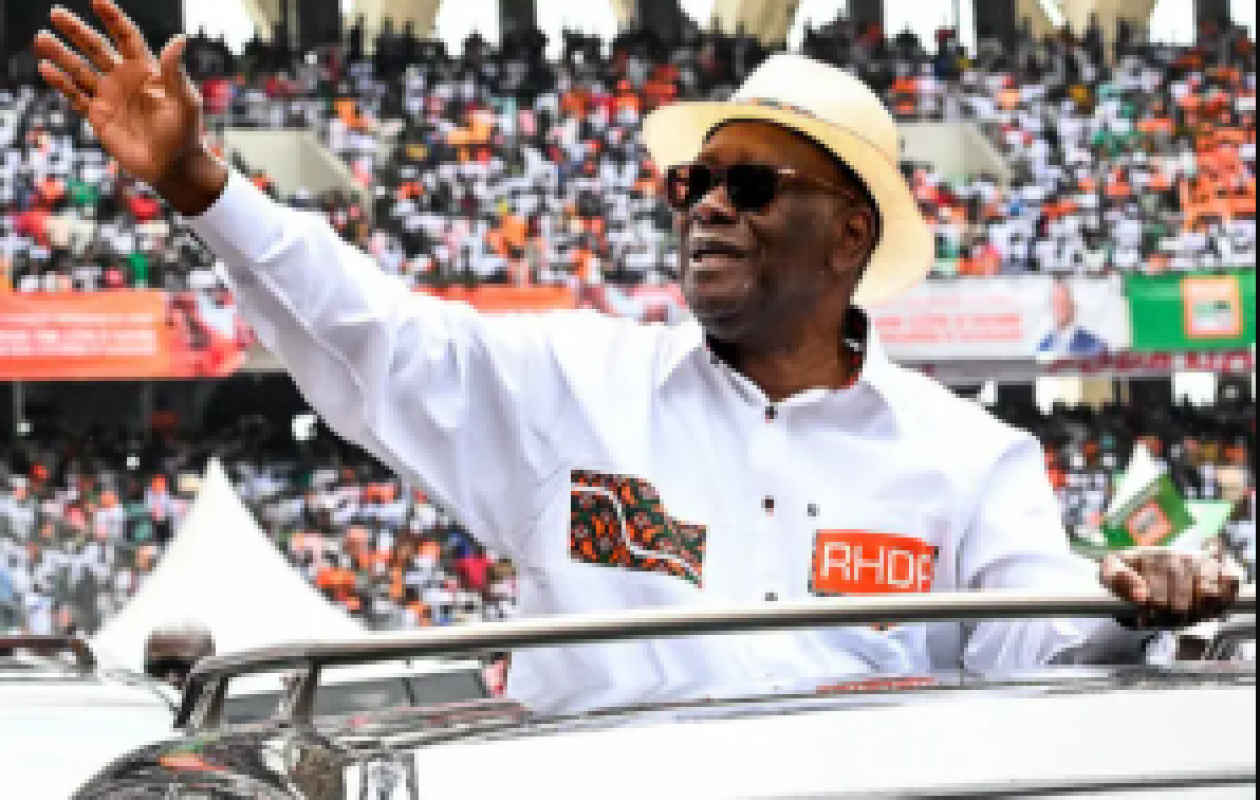
Mamadou Touré, porte-parole du candidat Alassane Ouattara : « cinq millions d'Ivoiriens sont sortis de la pauvreté en quinze ans »
The presidential election campaign in Côte d'Ivoire ends at midnight this Thursday, October 23. On Saturday, October 25, more than 8.7 million Ivorian voters will go to the polls to elect their next president for the next five years.
Alassane Ouattara, the outgoing president, in office since 2011, is running for a fourth term, a candidacy notably contested by the opposition.
The outgoing head of state intends to continue his development program by consolidating his economic achievements.
Interviewed by BBC Africa, Mamadou Touré, its spokesperson and central campaign director in charge of youth, highlighted the progress made by Côte d'Ivoire under the RHDP government.
He claims that five million Ivorians have been lifted out of poverty in fifteen years, while defending the security management and the restrictions imposed on certain opposition demonstrations.
Interview – Mamadou Touré, central campaign director in charge of youth and spokesperson for candidate Alassane Ouattara
BBC News Afrique: Let's talk a little about the RHDP's performance. In recent years, Côte d'Ivoire's Human Development Index has risen from 193rd to 157th place. This is a significant improvement. Economic growth remains around 7%, but a third of Ivorians still live below the poverty line.
Mamadou Touré: First, we must remember where we come from. Fifteen years ago, more than 55% of Ivorians lived in poverty. Today, that rate has fallen to 37%. This technically means that approximately five million Ivorians have been lifted out of poverty. For the coming years, our goal is to reduce this rate to 20% by 2030.
BBC News Africa: Nearly 75% of Ivorians are under 35. It's a very young population. The government has made efforts in the field of education: we've gone from three universities to nine, and the tenth is under construction. Yet youth unemployment remains high. What's the problem?
Mamadou Touré: Since 2011, approximately 3.5 million jobs have been created. Numerous programs have been implemented to improve youth employability: training, entrepreneurship support, project financing, etc. These initiatives will continue and strengthen in the coming years.
BBC News Africa: The observation is that 80% of the country's wealth is concentrated in Abidjan. How do you plan to develop the country's interior?
Mamadou Touré: Development begins with infrastructure. Where there are roads, electricity, and clean water, economic activity follows. Today, we want to go further by creating large regional economic hubs, with industrial zones in several regions of the country, in order to better distribute growth.
BBC News Africa: Nearly 75% of Ivorians are under 35. It's a very young population. The government has made efforts in the field of education: we've gone from three universities to nine, and the tenth is under construction. Yet youth unemployment remains high. What's the problem?
Mamadou Touré: Since 2011, approximately 3.5 million jobs have been created. Numerous programs have been implemented to improve youth employability: training, entrepreneurship support, project financing, etc. These initiatives will continue and strengthen in the coming years.
BBC News Africa: The observation is that 80% of the country's wealth is concentrated in Abidjan. How do you plan to develop the country's interior?
Mamadou Touré: Development begins with infrastructure. Where there are roads, electricity, and clean water, economic activity follows. Today, we want to go further by creating large regional economic hubs, with industrial zones in several regions of the country, in order to better distribute growth.
BBC News Afrique: The opposition has attempted to organize several marches in recent weeks. Some have been dispersed, sometimes with arrests, and there have been incidents, such as the burning of the electoral commission in Yamoussoukro. Why ban these demonstrations?
Mamadou Touré: Freedom of expression and demonstration is guaranteed, but it must not be used as a pretext for subversive actions. When demonstrations degenerate or call for violence, the state has a duty to put an end to them. We are in an election period. Several opposition parties have chosen to participate in the process, while respecting the institutions. But another segment of the opposition is calling for boycotts, disobedience, and sometimes even insurrection. We cannot accept that these calls jeopardize the country's stability.
A foreign politician recently declared that they had "seven days to liberate Côte d'Ivoire." Such remarks are serious. Our responsibility is to ensure the peace of mind of Ivorians.
Today, there are two blocs: a republican bloc, composed of ruling and opposition parties, committed to democracy and elections, and a subversive, anti-democratic bloc, which seeks to challenge our institutions. What is at stake is the protection of our democracy.
Commentaires (0)
Participer à la Discussion
Règles de la communauté :
💡 Astuce : Utilisez des emojis depuis votre téléphone ou le module emoji ci-dessous. Cliquez sur GIF pour ajouter un GIF animé. Collez un lien X/Twitter ou TikTok pour l'afficher automatiquement.